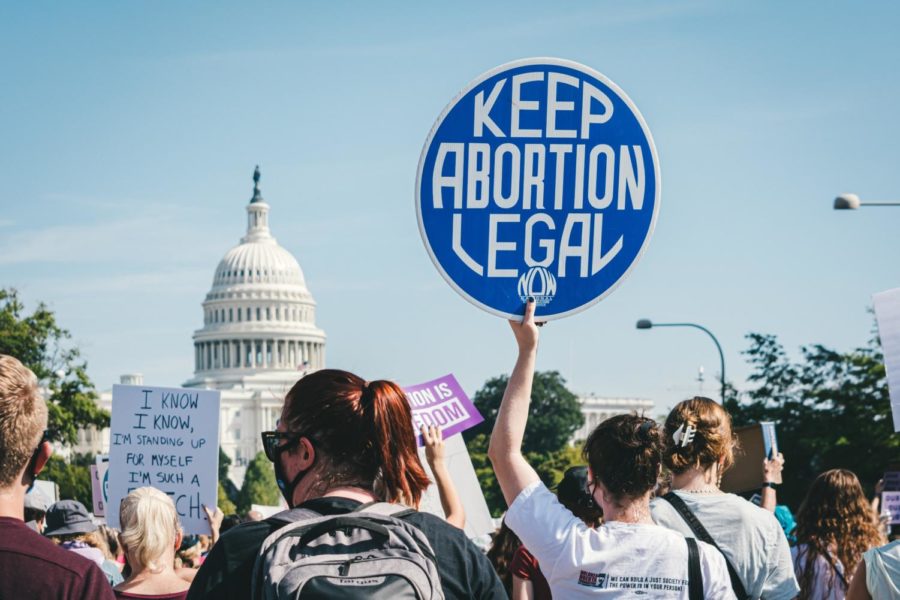Texas’s Senate Bill 8 and Other Abortion Laws
October 12, 2021
On September 1, 2021, a law in Texas, banning abortions after approximately six weeks of pregnancy, went into effect. It was issued by Governor Greg Abbott.
The law, named Senate Bill 8 (SB 8), is one of the most restrictive abortion bans in the country, essentially putting a bounty on the heads of anyone who either provides an abortion or aids and abets the procedure (e.g. someone who drives the woman to a clinic). Under the law, private citizens can sue these individuals, and could collect at least $10,000 if the suit is successful. The law is also known as the Texas Heartbeat Act, because the law bans abortion as soon as the fetal heartbeat is detected, which is approximately 6 weeks into pregnancy. The issue with this is that many women do not know they are pregnant before 6 weeks. Between 45 and 49% of pregnancies are unplanned, and many others are unanticipated, meaning that many pregnant women will not check if they are pregnant before 6 weeks.
Texas anti-abortion-rights group Right To Life claims that abortion providers have said that they will comply with the law as long as it is in effect. However, multiple groups have set out to challenge this law, including Planned Parenthood, the American Civil Liberties Union, and Whole Woman’s Health. The most significant rebuttal was made by US District Judge Robert Pitman. On Wednesday, October 6, 2021, Pitman issued an order that blocked the abortion ban by preventing any officer of the state (e.g., state court judges) from enforcing it. This decision was made on the grounds that it violated the constitutional right to abortion access. He also ordered the state to take steps to inform constituents and court officials that the law was blocked under his orders. Many have pointed out that, because SB 8 depends on citizens and not law enforcement officials to carry it out, the order may not be upheld.
In a little over an hour after Pitman issued the order, Texas announced that it would be appealing it to the 5th US Court of Appeals. Texas Attorney General Ken Paxton did so on the grounds that the Department of Justice can’t sue the state on the basis that no state officer is allowed to enforce SB 8. The federal district court would be failing to follow precedent by blocking the state of Texas itself from enforcing the law because, according to the text of the law, the state doesn’t enforce it — private citizens do. This unique method of enforcement makes the law difficult for courts to engage with, complicating lawsuits.
Two days after Court Judge Robert Pitman’s 113-page ruling brought a temporary stop to SB 8, the Fifth Circuit Court of Appeals issued an administrative stay on the ruling in response to the state of Texas’s request for a temporary stay, putting the law back into effect. From there, according to that court order, the Biden Justice Department has until Tuesday to respond to Texas’s emergency motion. The New York Times reported on Friday that some legal experts believe this temporary order is preceding a full stay— this means that in that scenario, SB 8 would be allowed to remain in effect permanently.
Abortion rights will be debated on every level of government, including in the Supreme Court. The Supreme Court’s new term began on October 4, 2021. The court’s term begins on the first Monday in October and lasts until the first Monday in October the following year. As of October 5, 2021, the court had agreed to hear 39 cases during its 2021-2022 term. One of these cases is Dobbs v. Jackson Women’s Health Organization. In 2018, Jackson Women’s Health Organization, a clinic and abortion facility in Mississippi, challenged the constitutionality of the “Gestational Age Act,” which prohibited abortions after the fifteenth week of pregnancy except in cases of medical emergencies or fetal abnormalities.
The case will determine if this state law is constitutional, taking into consideration the Supreme Court’s decisions in Roe v. Wade (1973) and Planned Parenthood v. Casey (1992). The important question at hand in the case is, according to Ballotpedia, whether all pre-viability prohibitions on elective abortions are unconstitutional. During the case, Roe v. Wade and Planned Parenthood v. Casey will be coming under scrutiny and face a possible reversal.
The Roe decision protected a pregnant woman’s freedom to choose to have an abortion, and it was maintained in the Planned Parenthood v. Casey case, where it was established that restrictions on abortion are unconstitutional if they place an “undue burden” on a woman who wants an abortion before the fetus is viable (capable of living outside the womb).
After SB 8 was first announced, the Center for Reproductive Rights filed an emergency application with the United States Supreme Court, seeking to block it from going into effect. The Supreme Court refused to block the law in a 5 to 4 vote, and with that precedent set, there is talk of similar anti-abortion laws going into effect in other southern states, such as Florida. John Seago of anti-abortion group Right To Life says that if SB 8 succeeds in Texas, activists in other states will be willing to replicate this model. There is already evidence of this when, on Wednesday, September 22, Republican representative in Florida’s House, Webster Barnaby, introduced an anti-abortion bill that would ban abortions after an embryonic heartbeat is detected, modeled after Texas’s abortion ban.












